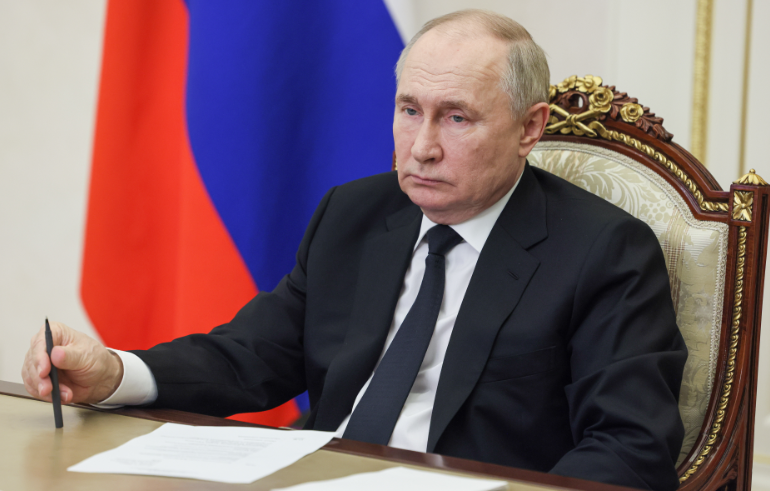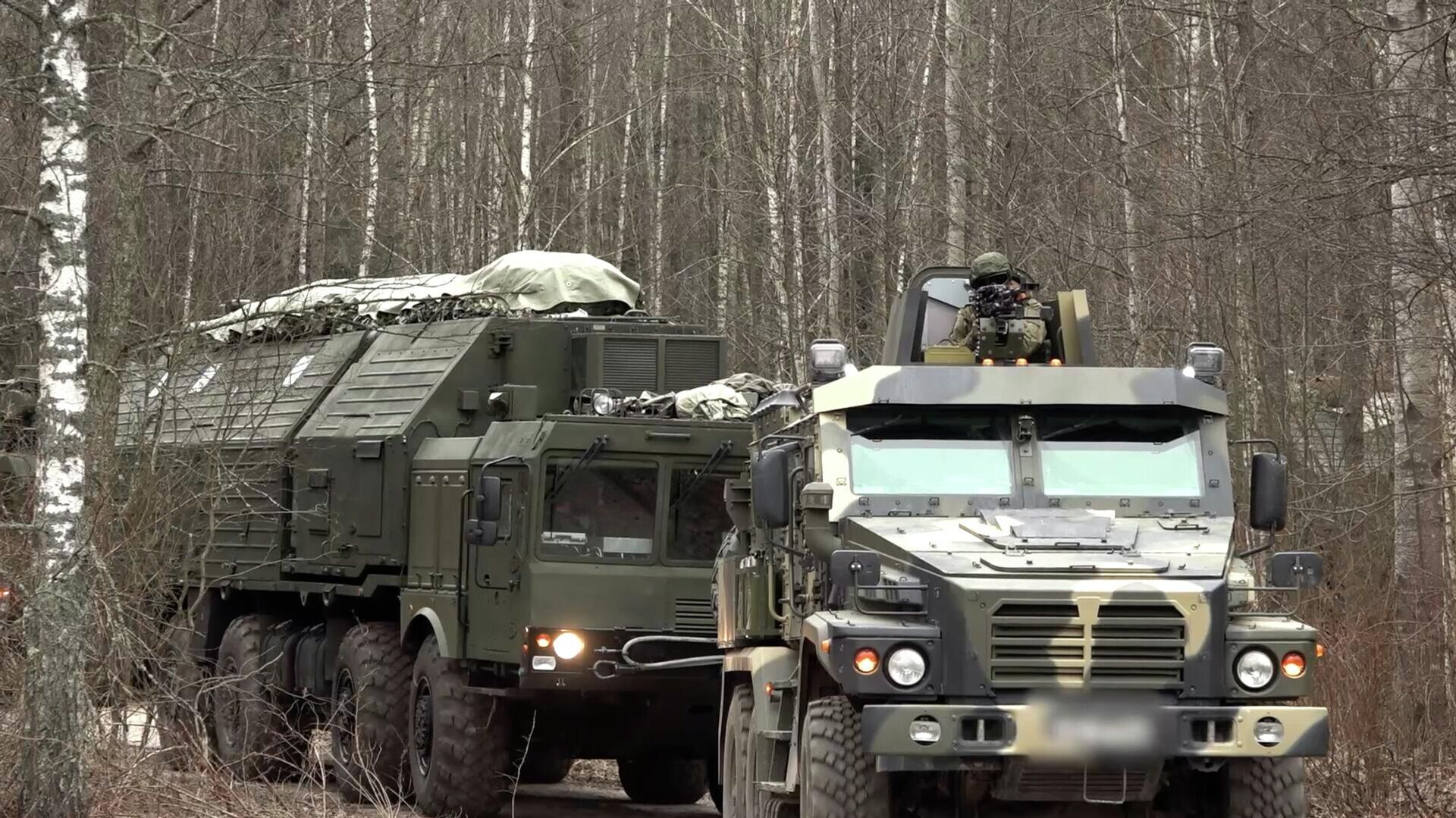
Terrorism Undercuts Putin’s Political Agenda
Terrorism Undercuts Putin’s Political Agenda
Executive Summary:
- The Islamic State in Khorasan Province (ISKP) terrorist attack outside of Moscow was an abject failure of the Russian intelligence services, leading officials to push conspiracy theories claiming that Ukraine and the West were involved.
- Moscow’s exploitation of Tajik immigrants, who perform the hardest, lowest-paying jobs in Russia and whom the police regularly mistreat, only exacerbates domestic tensions and creates a potential recruitment pool for ISKP.
- Russia’s anti-terrorism policies to isolate and blame the West for the attack block any possibility of restoring counterterrorism cooperation as Moscow’s influence in the Middle East wanes due, in part, to cordial ties with Hamas.
The shock from the March 22 terrorist attack on Crocus City Hall is continuing to generate angst and confusion throughout Russian society while failing to inspire unity. The Russian population may have grown accustomed to the perpetual shocks caused by the war in Ukraine, but the people are unprepared for the return of the specter of terrorism that loomed so large in the early 2000s. Russian President Vladimir Putin, who consolidated his leadership during Russia’s “war on terror,” which started with the explosions in Moscow in September 1999, cannot seem to find a way to turn the new disaster to his advantage (see EDM, March 25; Moscow Times, March 26). He had anticipated a confident start to his new presidential term, granted by the crudely manipulated “election,” but the Kremlin leader is now struggling to minimize the Moscow attack’s damage to his domestic authority and international agenda, as well as society’s support for the “long war” (Meduza, March 20; see EDM, April 1).
The terrorist attack that has claimed over 144 lives was an abject failure of the Russian intelligence services. Putin, however, cannot punish the heads of the intelligence services because they make up his most covert inner circle and are the main conduits of his aggressive policies (Republic.ru, March 25). To divert attention from the security failure, Russian officials have declared that the terrorist act is connected to Ukraine and have sought to extend that connection to the West, particularly the United States (Kommersant, March 29). No shortage of pundits are eager to spin these conspiracy theories and present the US warnings about probable attacks as corroborating evidence (RIAC, March 28). Convenient as such insinuations may seem, they block any possibility of restoring international counterterrorism cooperation, as suggested by French President Emmanuel Macron (Forbes.ru, March 25).
The primary responsibility for the Moscow attack lies with the Islamic State in Khorasan Province (ISKP). It would take a long stretch of malignant imagination to present the Khorasan offshoot as a tool of US policy (see EDM, March 26; TopWar.ru, March 28). The depth of Islamist radicalization fostered by ISKP in Tajikistan, one of Moscow’s most reliable allies in Central Asia, has aggravated societal discontent in Russia (Carnegie Politika, March 25). Tajik labor migrants perform some of the hardest and lowest-paying jobs in many cities across Russia. This unregulated exploitation inevitably creates a recruitment pool for ISKP (The Insider, March 29). Expelling illegal migrants might seem like a natural countermeasure to many Russians, but the manpower shortage caused by the war against Ukraine makes Russia’s economy increasingly dependent on this cheap labor force (Svoboda.org, March 27).
Police brutality toward Tajik immigrant communities has exacerbated the situation, creating another opening for Islamist recruiters (Novaya gazeta Europe, March 29). For ISKP’s ambitions, these domestic opportunities can be strategically connected with Russia’s ambivalent policy in the wider Middle East (Nezavisimaya gazeta, March 25). Counterterrorism used to be a key tenet of that policy. Currently, however, Moscow is trying to build ties with the Taliban and dissuade the Houthis in Yemen from targeting Russian ships (RBC.ru, March 21).
Russian forces confronted the Islamic State most directly in Syria. In recent months, only occasional airstrikes have been delivered on the rebel-controlled Idlib province (Interfax, March 7). Hezbollah has been a key Russian ally in Syria. Yet air defense assets at the air base in Latakia have not interfered with Israeli airstrikes. The Russian Foreign Ministry even condemned Israel’s recent bombing of a camp near Aleppo as an “unacceptable provocation” (RIA Novosti, March 29). Terrorism continues to be a significant driver of instability in the Middle East, but Russia finds its influence and legitimacy in the region waning, not least because of its cordial ties with Hamas and other terrorist groups (Carnegie Politika, March 13).
The harder Kremlin “hawks” push Ukraine’s involvement in the Moscow massacre, the less convincing the claims become to many states in the Global South, who are well aware of ISKP’s activities (Interfax, March 26). India is one of Moscow’s particular concerns. Ukrainian Foreign Minister Dmytro Kuleba’s recent visit to New Delhi has added to these worries (Kommersant, March 28). India’s possible contribution to the peace summit planned to be held sometime this summer in Switzerland, where Ukrainian President Volodymyr Zelenskyy’s peace plan will be discussed, will be a significant blow to Russian intrigues aimed at torpedoing or at least postponing this event (Rossiyskaya gazeta, March 28). Brazil is another important but currently unconfirmed participant in the peace summit. Russian pundits are keen to argue that Macron’s recent visit has not changed President Luiz Ignacio “Lula” da Silva’s neutral stance on the war (Izvestiya, March 29). China remains ambivalent about sending a delegation to Switzerland, but Russia has few means to influence Beijing’s position (Vedomosti, March 19).
Putin’s intention to prove that domestic support for his “long war” remains strong and the apparent inability of his security apparatus to deal with the real causes of terrorism only aggravates the damage (see EDM, March 28). The Kremlin leader attempts to demonstrate confidence in Russia’s capacity to sustain the war effort, but the depth of domestic discord and discontent has been exposed. Many international actors who saw benefits in preserving neutrality and circumventing sanctions must now re-evaluate.
Russia currently maintains the advantage on the Ukrainian battlefield. Still, a change in fortunes is increasingly probable—not only because of the new surge in Western support for Ukraine but also because of the degradation of Russia’s newly militarized economy and traumatized society. The presidential “election” has depleted rather than improved support for the war, and the next spasm of crisis may trigger a chain reaction that leads to a complete meltdown.


